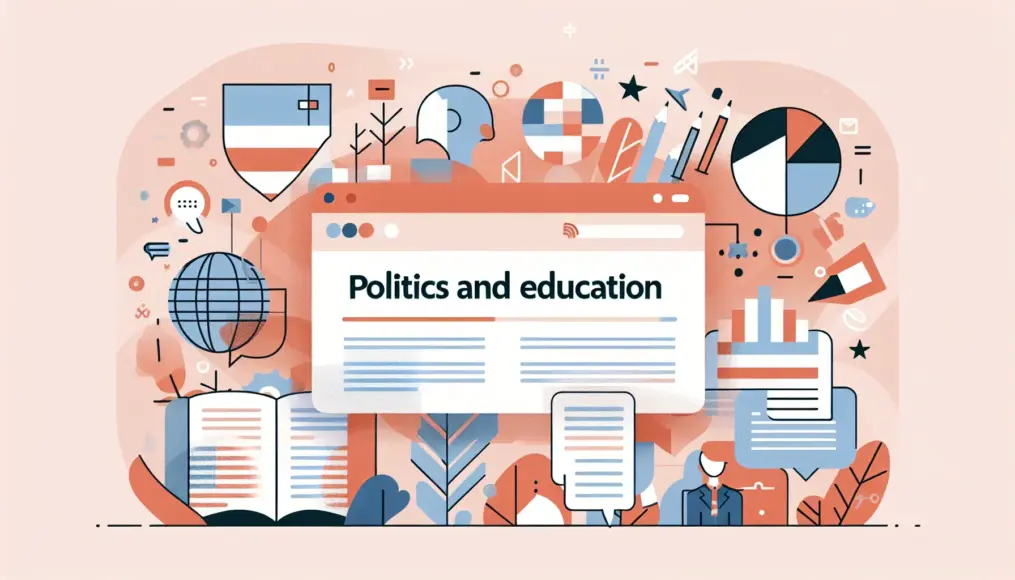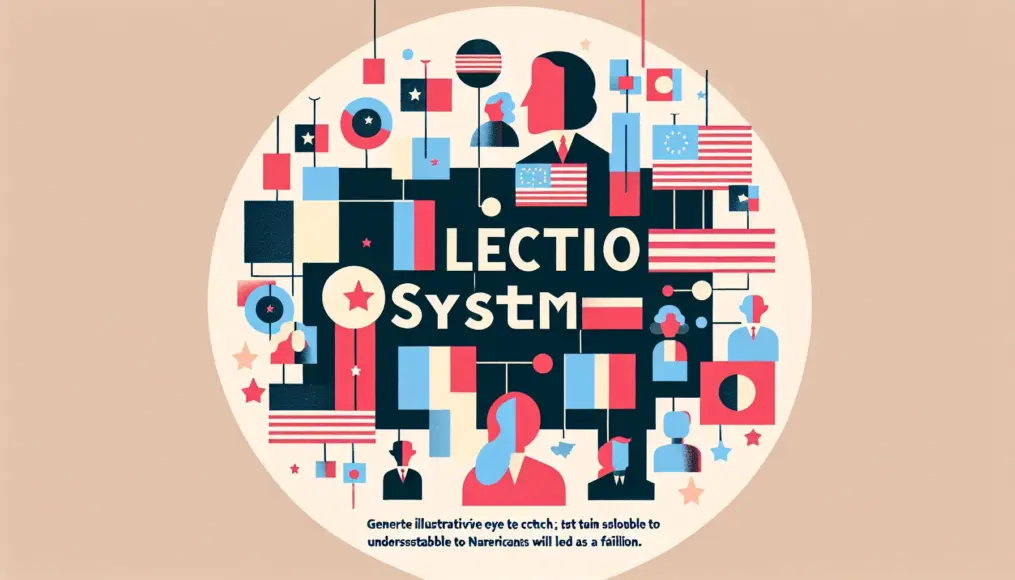In recent years, there’s been a noticeable decline in interest towards politics in Japan, particularly among younger generations. This trend seems to be influenced by a variety of factors, and by listening to their perspectives, we might uncover insights into future political engagement and emerging values.
This article delves into the reasons behind political disengagement and explores the role of politics in contemporary society. Let’s reflect together on how young people perceive politics and what the future might hold for them.
- Historical Context and Cultural Influences on Political Disengagement
- The Importance of Civic Engagement in Modern Society
- Reasons Behind Youth Disinterest in Politics and Possible Solutions
What Lies Behind the Disengagement from Politics?
The decline in interest in Japanese politics is not merely a passing trend or a fleeting sentiment. When viewed from a historical perspective, various factors contribute to this political disengagement. By reflecting on the evolution of politics from the post-war era to the present, we can better understand how our political consciousness has been shaped. Moreover, it’s crucial to recognize how cultural and social changes have influenced public interest in politics. In this section, we will explore the historical and cultural impacts that underlie this growing disconnection from politics.
A Historical Perspective on Political Evolution
Japanese politics began its journey with the establishment of democracy after World War II. Initially, as the economy flourished, public interest in politics also grew. However, following the collapse of the economic bubble, many began to feel disillusioned with politics. The continuous scandals involving politicians and failures in policy implementation led to a significant decline in public trust in the political system.
As a result, many young people started to distance themselves from politics, feeling less connected to how political decisions impact their lives, which further diminished their interest. It’s important to consider how historical events have shaped our political consciousness and perceptions.
- The trajectory of post-war Japanese politics and its impact
- The rise in political interest during economic growth
- The decline in trust caused by scandals and policy failures
Cultural Influences on Changing Political Awareness
Culture plays a significant role in shaping our thoughts and behaviors. One particularly fascinating aspect is how media and education have influenced political awareness. Today, the sheer volume of information available makes it challenging for young people to discern what truly matters. In such an environment, it’s no surprise that interest in politics wanes.
Additionally, as societal values evolve, so too do the expectations and roles associated with politics. In the past, politics was seen as a means to address societal issues; however, modern expectations have shifted, emphasizing individual empowerment over collective political action. This shift has further accelerated the trend of political disengagement.

If you found this article intriguing, you might also enjoy our piece on “Understanding the Essence of Democracy and the Role of the State: Addressing Contemporary Issues.” It delves deeper into the foundations of democracy and its modern challenges, providing valuable insights to enhance your political awareness.
- The impact of media and education on political awareness
- How information overload diminishes young people’s interest
- Changes in societal values and the evolving role of politics
The Role of Politics in Modern Society
In today’s world, the role of politics goes beyond just creating rules. It’s crucial to consider how politics impacts the daily lives of each citizen. Additionally, the interplay between politics and culture is significant; understanding how political dynamics influence our values and perspectives can deepen our comprehension of politics. In this section, we will explore the connection between politics and culture and the importance of civic engagement in society.
The Interplay Between Politics and Culture
Culture affects every aspect of our lives, and politics is no exception. For instance, forms of expression like music, art, and film often serve as powerful vehicles for political messages. Young people, in particular, frequently engage with politics through these cultural mediums. What they see and hear can shape their views on political issues and motivate their interest in civic affairs.
As culture evolves, so do the expectations and demands of politics. In an increasingly diverse society, a variety of opinions and values emerge, necessitating a political approach that reflects this complexity. Understanding this interplay can help rekindle interest in political engagement.
- The Influence of Culture on Politics
- Why Young People Engage with Politics Through Culture
- Changes in Political Expectations Amid Social Diversity
The Impact of Civil Society and the Importance of Participation
Civil society is deeply intertwined with politics in our everyday lives. Through local community activities and volunteer work, citizens are encouraged to participate in the political process. These activities provide opportunities to experience firsthand how politics affects our lives.
By getting involved in politics, citizens can express their opinions and make their voices heard, helping to combat political apathy. When young people actively participate, they bring fresh values and perspectives to the table, paving the way for a better society.
- The Relationship Between Civil Society and Politics
- How Community Activities Foster Political Participation
- The New Values Young People Bring Through Their Involvement
The Reality of Youth Disengagement from Politics
Recently, there has been a growing concern about young people distancing themselves from politics. The reasons behind their lack of interest are varied and intertwined with factors that often go unnoticed. In this section, we’ll delve into why young people are becoming increasingly disengaged from the political arena, specifically exploring their dwindling interest and the role social media plays in this trend.
Reasons Why Young People Aren’t Interested in Politics
One of the main reasons young people feel disconnected from politics is that they perceive it as having little relevance to their lives. The complexity of political issues can also be daunting; many young individuals find themselves overwhelmed by technical jargon and convoluted debates. Additionally, with the sheer volume of news and information available, it can be challenging for them to discern what truly matters.
Another significant factor is the declining trust in politicians and political parties. Past scandals and controversies have led many young people to adopt a cynical view, believing that “politics won’t change anyway,” which further diminishes their interest. This combination of factors has contributed to a growing trend of youth disengagement from political matters.
- Young people feeling politics doesn’t relate to their lives
- Resistance to complex political issues
- Erosion of trust in politicians
The Relationship Between Social Media and Politics
In recent years, social media has become a crucial source of information for young people. However, the information found on these platforms is not always reliable. The prevalence of fake news and biased reporting can lead to misunderstandings about political matters, further diluting their interest in politics.
On the flip side, social media provides a platform for young people to express their opinions. Online discussions and exchanges can spark interest in political topics. However, these digital interactions rarely translate into real-world political participation; instead, they often culminate in mere likes and retweets without any substantive action.
- Concerns about the accuracy of information on social media
- The impact of fake news
- The disconnect between online activity and real political engagement
The Future of Political Engagement
The current trend of young people distancing themselves from politics presents us with a fresh perspective. The future of political participation may call for innovative approaches that break free from traditional frameworks. In this chapter, we will explore how the evolving values of young people influence political engagement and how reconnections with local communities can unfold. Together, let’s consider how politics might transform in the years to come.
New Values and Forms of Political Participation
Today’s youth hold different values compared to previous generations, focusing on issues like environmental sustainability and social equity. They tend to actively express their concerns and take action on topics that matter to them. Such new values have the potential to reshape the landscape of political participation.
For instance, young advocates for environmental protection are raising their voices through policy proposals and demonstrations. Additionally, the rise of online platforms makes it easier for them to share information and rally peers around their causes. As a result, opportunities for expressing opinions outside of traditional elections and political activities have expanded, broadening the scope of political engagement.
- The impact of youth values on politics
- Interest in environmental issues and social equity
- New forms of political participation using online platforms
Reconnecting Local Communities and Politics
Local communities serve as crucial arenas for political engagement. Young people often find their interest in politics sparked through community activities. By participating in local events and volunteer work, they gain a deeper understanding of issues that affect them and have more opportunities to realize the significance of political involvement.
Moreover, as local communities thrive, the connections among residents strengthen, leading to a heightened awareness of political participation. Collaborating with local leaders and activists allows young voices to be reflected in political discussions. This creates tangible actions aimed at solving community issues, making politics feel more relevant and accessible.
- Why community activities can spark political engagement
- The effects of strengthened resident connections
- How to reflect young voices in local politics
Conclusion
The growing disconnect from politics in Japan is particularly evident among young people, influenced by a complex mix of history, culture, and the modern information landscape. Understanding why young people seem disinterested in politics, as well as exploring the role of social media in shaping their potential for political engagement, presents a crucial opportunity to reflect on how the future of politics may evolve. It’s essential for each of us to recognize the importance of getting involved in political matters, including reconnecting with our local communities.
The future of political participation is likely to evolve by embracing new values and diverse forms of engagement. When young people actively participate and voice their opinions, they pave the way toward building a better society. Each step we take can make politics feel more accessible, creating a future where more people are encouraged to get involved.
- Historical and cultural factors contribute to the political disengagement in Japan
- Reasons behind young people’s disinterest in politics and the influence of social media
- Reconnecting with local communities can promote political participation
Why not start paying attention to the issues that matter to you today and get involved in politics? We’d love to hear your thoughts and opinions in the comments!



Comment